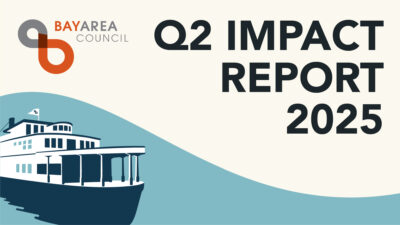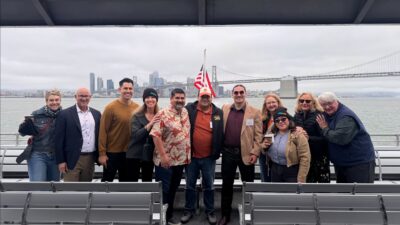California Resilience Challenge Spotlight Series: Resilient Communities at Clear Lake
This is one in a series of profiles of the 12 winners of the California Resilience Challenge, a first-of-its-kind statewide initiative of the Bay Area Council and a diverse array of partners. The Challenge recently awarded $2 million in planning grants for a variety of innovative projects in communities across the state to address the growing impacts of climate change, including drought, floods, wildfires, and sea-level rise.
Clear Lake is the largest natural freshwater lake in California, essential to the lifeways, traditions and cultural activities practiced by countless indigenous tribes for millennia. As part of the lake’s complicated history, after settlers displaced most of the original inhabitants during the 19th and 20th centuries, Clear Lake became a tourist destination, while also suffering from the after effects of a toxic mercury mine, introduced invasive fish species, and other environmentally unfriendly practices.
Despite its current status as an irreplaceable resource for seven native tribes and the greater Clear Lake community, the lake has experienced a series of toxic algal blooms and increased fish die-offs in recent years. These disruptions to the local ecosystem are primarily due to loss of the tule marshland which allows unfettered flow of nutrient pollution. Drought and low water levels lead to increased water temperatures, which in turn promotes cyanobacteria growth. As cyanobacteria blooms die, this drops the dissolved oxygen levels which can cause fish kills.
With a grant from the California Resilience Challenge, the Big Valley Band of Pomo Indians are greatly amplifying their existing lake monitoring/ system by expanding an open-access data-management portal for Clear Lake’s water quality issues. Specifically, the project aims to provide additional aquatic data, promote multi-jurisdictional collaboration by compiling data in a centralized system, and empower local community members by facilitating aquatic ecology training. The grant also allows stakeholders to implement more effective responses before fish die-offs and harmful algae bloom occur as data will be available in real-time.
This project is especially important considering the regional environmental, economic, and cultural significance of Clear Lake. For instance, the lake provides drinking water for nearly 60% of the county, therefore, any water quality issues will adversely impact water security of thousands of people. Culturally, Clear Lake is known as a cultural landmark for indigenous tribes with events such as the Big Valley Rancheria Annual Tule Boat Festival held there since 2001, and numerous important traditional cultural activities. The lake stimulates the regional economy as lake-based activities, including regular fishing tournaments that take place at the Konocti Vista Casino Hotel and Marina, draw tourism.
Increased fish die-offs have threatened the livelihoods of local fishermen, which rely on the lake for subsistence and recreational uses. In addition to harmful health effects on humans, ecological imbalances impact aquatic wildlife and the surrounding above-water ecosystems by disrupting food webs that include many culturally significant species.
Sarah Ryan, the Deputy Tribal Administrator and Environmental Director of the Big Valley Band of Pomo Indians, explains the goal of the initiative. “We want to create a collaborative group including the public, to share information and identify surveillance tools to allow us to develop mitigation efforts. The initiative will improve public health in communities surrounding Clear Lake and helps boost the regional recreational economic activity,” Ryan said.
Special thanks to California Resilience Challenge funders PG&E, JPMorgan Chase & Co., Valley Water, Metropolitan Water District, Southern California Edison, Resources Legacy Fund, Alaska Airlines, SFPUC, SD Bechtel Jr. Foundation, and Pillsbury; and special thanks to Advisory Committee members AECOM, Pillsbury, Climate Resolve, Environmental Defense Fund, Ceres, and the Governor’s Office of Planning and Research.
To learn more about the California Resilience Challenge, please contact Policy Associate Anna Sciaruto.





